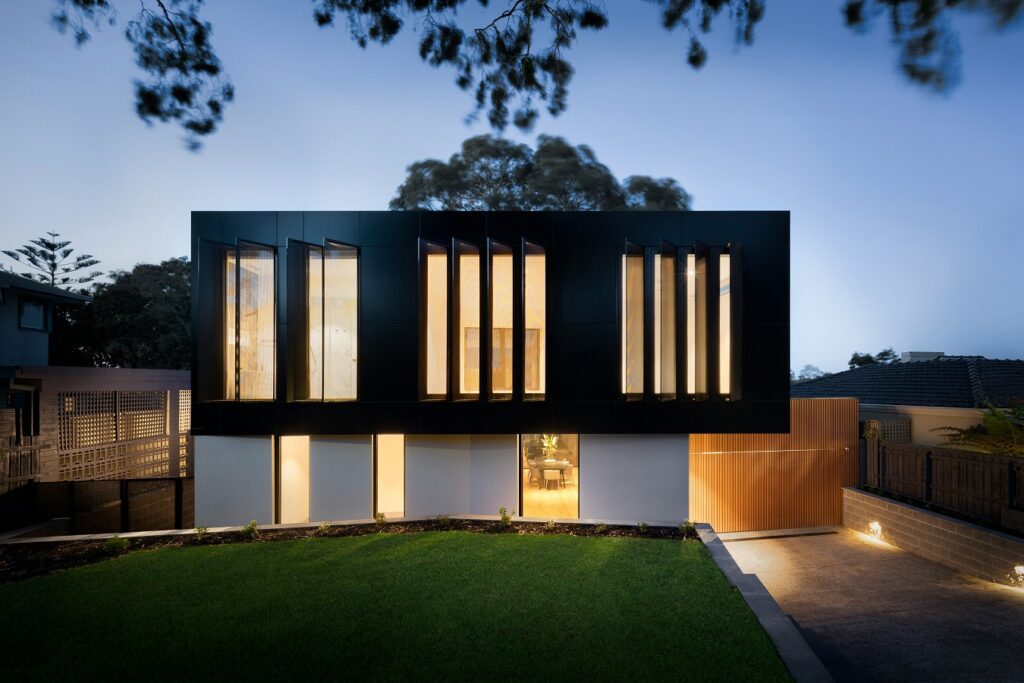It may not be the most interesting or entertaining debate, but it WILL come into play during the purchase or sale of your home.
Definitions aside, it is often left up to the courts to decide what is a chattel and what is a fixture.
Think it’s straight-forward; chattels and fixtures? Well then how would you classify a massive, 900-pound garden gnome?
First, let’s take care of the definitions:
“Chattel” – personal as opposed to real property; any tangible movable property (furniture, domestic animals, etc).
“Fixture” – an object firmly fixed in place
Why do we care?
In the sale of real property, a seller (and the other relevant parties; buyer, agents, lawyers, etc) must determine what objects in and around the property are chattels and which are fixtures so that it can be known which objects will be included in the sale of the property.
Here is an excerpt from The Free Dictionary:
In the law of real property, ‘fixtures’ are anything that would otherwise be a ‘chattel’ that have, by reason of incorporation or affixation, become permanently attached to real property. At law, fixtures are treated in the same manner as real property.
A classic case of a fixture is a building, which in the absence of language contrary in a contract of sale is considered to be a part of the land itself and not a separate piece of property.
Some examples of a fixture are obvious – a piece of lumber sitting in a lumber yard is clearly a ‘chattel.’ However, that same piece of lumber in a fence surrounding real property is considered to be real property itself.
You get the idea…
It should be obvious how these two definitions play a part in the everyday real estate transactions.
The old adage rings true: better safe than sorry.
Misidentifying chattels and fixtures is one of the most common sources of turmoil in real estate, and that’s why a good selling agent will carefully detail what is included along with the real property in the notes on the MLS listing.
But even if you take your time and make a list of inclusions and exclusions, there are still some grey areas.
The most common fixtures included in the sale of real estate are the appliances and electric light fixtures (ELF’s). If a condo-owner has a special, $2,000 chandelier in his living room, he may decide to take this with him to his new home and thus he will note on the MLS listing “Exclude: dining room ELF.”
Drapes, curtains, and shutters are also common inclusions/exclusions as well.
So where does the grey area come into play?
Well for years, we had our television sets sitting on the floor of our homes, or in a wall-unit or some other source of display. Along with the advent of flat-screen televisions came the wall-mount-brackets that we use to hang the televisions on the wall like a painting. Going by the standard definition of a “fixture” above, a wall-mounted television would certainly fit into that category.
If you drill holes in your wall and affix a mechanical contraption to hold your television firmly in place, your television becomes a “fixture,” and by rule, ALL fixtures are included in the sale of real property unless specifically excluded in the contract.
But let’s be serious for a moment – who leaves their 52-inch Sony Plasma TV behind when they move out of their condo? It doesn’t matter how many holes you’ve made in the wall, you’re tearing that sucker out!
However, a buyer may have a case that the wall-mounted television is a “fixture” and if it’s not excluded in the Agreement of Purchase & Sale, then the buyer is entitled to that television.
Clearly, this is why we use the “inclusions” and “exclusions” on the MLS listing and subsequently in the Agreement of Purchase & Sale. But not everything is so cut-and-dry.
Noted real estate lawyer Bob Aaron who writes for the Toronto Star was quoted in one of his articles as saying, “Law students are taught in first-year property courses that chattels are items of moveable or transferable property, unlike land and buildings that are fixed and immoveable.”
But even this definition can create grey areas!
A car parked in the driveway of a home that is for sale is clearly a chattel. It’s not going to be sold with the house just because it happens to sit on the land, and it’s moveable since all you need to do is put in in ‘drive’ and roll down the driveway.
A garden gnome is a chattel since you can pick it up and pack it in a box along with the rest of your belongings.
But what if you had a massive, stone, garden gnome that weighed 900-pounds? If that sat in the middle of your yard (I pity the home-owner, but I digress…), perhaps that would be considered a fixture since it’s essentially immoveable and it’s basically attached to the land much like the house itself!
If you used a forklift, surely you could “move” the garden gnome.
So how then does that moveable/immoveable definition help us?
I had a situation earlier this year where the chattel-vs-fixture debate was taken to a whole other level.
My clients took possession of their new home in North York and much to their surprise, every single towel-bar, shower-rod, and bathroom-mirror had been removed. Suffice it to say, they were less than pleased with the discovery while moving into their first home together!
By definition, a mirror could be a fixture if it were glued or mounted into place, but perhaps it’s a chattel if you can simply pull it down off the wall.
A towel-rod, I must say, is most certainly a fixture since it is affixed into place with screws and drywall-plugs.
So what was the remedy for my clients?
Unfortunately, they had none.
How much time do you want to spend chasing a bunch of sour, cheap, home-owners for taking $40 worth of towel-bars and towel-rods after you paid $800,000 for the house?
Now, if a very ornate, custom-designed mirror valued at $3,000 had been removed, then it would be another story.
But this is exactly why sellers and their agents need to make a list of inclusions and exclusions on the MLS listing!
Sometimes it won’t matter, as was the case of a first-time condo buyer I had a few years ago. This poor girl took possession of her King West condo on a Friday after work during the winter, and she arrived at her new home around 6PM when it was dark outside…..and inside! The seller had taken all the light-bulbs with him when he moved out! How cheap is that!?
Is a light-bulb a chattel or a fixture? Well, I think that the electric light fixture itself is a fixture (it helps that it actually has the word “fixture” in the name so there is no disputing) because it is screwed into place and affixed to the ceiling, but the light-bulb, on the other hand, is an object that is placed into the fixture, and is easily moveable.
So yes, a light-bulb would probably be considered a chattel, and the seller would be well within his rights to take all the light-bulbs with him.
WHY he would do that is another story. Maybe he really needed the $1.20 that they were worth…
Sometimes the list of chattels and fixtures on the MLS listing is a little ridiculous, such as including “Cedar Deck” on the inclusions. Are we really to assume that the seller would remove the cedar deck had he not included it in the listing?
However, consider a hot-tub that is on the back deck.
Or better yet, consider two scenarios with the hot tub:
1) the hot-tub is ON the deck, ie. it sits completely encumbered atop the planks of wood themselves
2) the hot tub is below-grade, ie. the deck was built around it or the hot-tub was built INTO the deck itself
Are these situations different?
Does the fact that the hot tub in scenario #2 sits within the deck itself change the definition of a “chattel” from scenario #1?
Some might say “yes,” while others might say “no.”
I don’t believe there is a single issue in all of real estate that carries as much grey area as the chattel-vs-fixture debate; a debate that is ongoing as countless buyers and sellers take eachother to task over the very definitions which we still can’t figure out!
In my personal opinion, almost ALL these debates could be rectified by stringent usage of the “inclusions/exclusions” on the MLS listings, but something tells me that the problems won’t go away.
Where there is grey-area in real estate, there will always be potential for disappointment.
Just ensure you do your homework on the chattels and fixtures in a given property well in advance of making an offer…































Anrel
at 2:09 pm
Is my Vermont castings gas’line BBQ’ a chattel or a fixture ? (is it an appliance that one would sell with the house
David Fleming
at 12:07 am
@ Anrel
This isn’t something you’d typically include in the transaction, unless you wanted to, or the buyer wanted the item.
This would be a chattel, not a fixture. The gas line is affixed to the house, and is affixed to the BBQ, but the BBQ itself is not a fixture.
Mindy
at 9:55 am
If the bbq is not a fixture but the gas line is, then couldn’t the same be said of the wall mounted TV? The bracket itself is a fixture because it’s mounted on the wall, but the TV is just attached to the bracket so it’s not a fixture (the same way the bbq is attached to the gas line). You said in the blog above that the wall mounted TV would fit the definition of a fixture.
Dorothy
at 4:29 pm
Would a patio gazebo with fabric canopy that is screwed to a wooden deck be considered a fixture or a chattel? The buyers of our house want “the deck canopy” but they did not specify the structure to which the canopy is hung from. I have my reasons for wanting the structure. The buyers have been a nightmare to deal with so I want to make sure that I take everything I can within the letter of our purchase agreement. Curtain rods are another thing that I am unsure of. Are the rods fixtures or are they chattels?
David Fleming
at 10:54 pm
@ Dorothy
When in doubt, include/exclude items in the Agreement of Purchase & Sale!
A buyer, or seller, could argue “grey area.”
In my opinion, curtain rods are fixtures, and they should be written into the deal if they’re going to stay with the home. The curtains themselves are always presumed to be excluded, otherwise, clothes in a closet could be included.
The buyer of my old condo wrote “all patio furniture” into the Agreement. I left behind the table and six chairs, but I took a storage unit. He complained to his lawyer that the storage unit should have been included, whereas I argued that it’s only “furniture” if you sit on it. In the end, a million letters from lawyers wasn’t going to change my mind; nobody was going to sue me over $200.
When in doubt, make it part of the contract.
Rick
at 12:05 am
Are reusuable vinyl wallstickers that were present during the signing of the purchase contract considered an attached or unattached good? I’m thinking that they should qualify unattached wallart since they are vinyl and reusable and will not damage the wall or leave any residue when removed. I’m in a situation where I’ve sold my property and want to remove my stickers but the buyers are saying they are considered as attached goods (like wallpaper)… Who wins?
rechter
at 10:59 am
i would consider the stickers as decoration, take m out.
unless your sticker creation ‘makes’ the room.
are they necessary in the house?
may
at 1:43 pm
Is TOTO Washlet a fixture or a chattel?
Lou
at 8:19 am
So, given your hot tub scenario in the article above, a free standing (not sunk in) hot tub on a deck that is wired to the house is chattel?
ZG
at 8:26 pm
We made an offer for a power of sale house and got counteroffer from bank solicitor in which they excluded (as chattel) gas fireplace in the house, also a detached studio in the backyard about 14’x22′ with electrical panel (electric source from the main electrical panel in the house) and concrete floor, insulated, heated, and a small shed (I would say movable).
In our understanding “as is” meant as we saw the property (empty) before signing the offer. Studio and fireplace pictures were specifically included in MLS listing, but were not specified verbally. We assumed fireplace and studio are fixtures, not chattels. Am I right?
Otherwise seems property is open for vandalism until closing day, as owners would not be able to move studio, but certainly they can take what they want, windows, door, roof…and removed fireplace would leave damaged wall. The property is worth, in my opinion, the asking price with those fixtures.
kisa
at 1:02 am
Is kids play set a chattel or fixture?
Camille
at 1:26 pm
Would a rented air condition and rented furnace (which means it’s not the property of the individual) be the responsibility of the vendor or the purchaser to pay-off.
Glen
at 4:48 pm
In our agreement, Chattels say Kitchen Appliances. Does this mean the counter microwave and or the freezer in basement that are not specifically mentioned?
Inna
at 6:42 am
We purchased a house that had built-in stove/oven and built-in microwave, because their realtor didn’t include microwave in the listing we missed the microwave in the offer but did add built-in stove (as per many people understanding stove = oven) and built-in range, now the seller wants to remove the microwave and the oven
they consulted a lawyer that confirmed that they can do it.
I have searched the internet and found in many sites that built-in appliances are bart of the property by default, only non-built-n appliances have to specifically mentioned in agreement of purchase and sale.
What can I do as the seller plans to take these out, first I wanted to reduce the final amount on the closing day, but I am afraid that this will void the deal, I don’t want to loose the house, and we think the seller is looking for this as they decided that they sold the house too low (which is not)
thanks
donna
at 11:45 am
Our ensuite mirror is hung on the wall with a nail. Can I take this with me, on closing? It has sentimental value. I would be replacing it with another mirror if required. Please advise. Thank you
Donna
at 6:49 am
How about the hose & attachments for a central vac system? The canister is permanently mounted but the home owners defined the hose etc as ‘chattels’ since they weren’t permanently affixed…isn’t that like taking the metal racks out of an oven?
Susan
at 6:10 pm
I understand the difference between chattels and fixtures but I have another question – if you have excluded a specific item (i.e. a dining room chandelier), are you obliged to replace it? Are there any specifications as to what you replace it with?
We specifically excluded a family heirloom chandelier and 2 matching sconces with a value of approx $3000. Our buyers are asking that we replace them with something of “similar type”. Do we have to please the buyers or can we replace the fixtures with our choice of inexpensive fixtures? Is there any requirement to spend a specific amount or to achieve a specific look?
Dave
at 11:47 am
Technically if you remove a light fixture you need to get an ESA permit and have it inspected before and after. Failing an electrical inspection could make the house uninsurable. So I would use brand new CL approved fixtures.
To your point though, unless the buyer stated a value, you would only be obligated to do the minimum.
Gasho
at 5:19 am
Is a gas stove a fixture since it needs a tool to remove it?
A built in stove is a fixture or chattel?
Also refrigerators with a water line are also connected using a tool;
Are they fixtures?
Canopy hood fan a fixture?
Crystal
at 6:41 pm
We sold our house and listed elf on the mls listing. The buyer did not list elf in their purchase agreement. There are a couple elf that we would like to take with us and would replace them but with cheaper versions. Is that legal?
Charity
at 9:01 pm
If the buyers name a fixture that is not and has never been on the property or on the listing, in the agreement (in our case central air conditioning, listed as cac) do we then have to purchase one and put it in? or is it not included because it was never there?
Thank you.
Dave
at 11:25 am
A chattel or fixture has to be something currently owned that can be transferred if deemed. A special agreement would have to be made if the buyer wants the seller to install an air conditioner. That does happen often. Another example would be if the buyer wanted the furnace replaced or the roof redone. It would be an extra condition in the offer.
In your case the real estate agents should have straighten it out before you accept the terms of the offer. Even after the original offer is accepted you can make amendments if both parties agree. If there is a contract dispute then that is a lawyers domain.
Dave
at 11:16 am
A wall mount TV is a chattel unless you bolted the TV itself to the wall. That is never the case (because it’s impossible). Typically you bolt the wall mount plate to the wall which includes a hanger for the TV. You then attach hooks tot he TV so it can hang on the wall mount. So unless it is specifically mentioned as a chattel to include then it goes with the seller.
The same goes for surround speakers that are build in to walls or are mounted directly on the wall. If the speaker is in the wall, then it’s a fixture and the seller must exclude them if they want to keep them. If the speakers are hung on the wall via a screw or a wall mount bracket then it’s a chattel just like a painting or decorative wall covering. The buyer must include them in the offer if they want them. The wall mount bracket, the wire if it’s run through the wall and a faceplate (if used) are fixtures.
Tara
at 7:57 pm
In the case of a Commercial Restaurant Chattel Sale, since there are hundreds of small ware items, who owns them if they are on neither inclusion or exclusion list?
Marilynne Anne Dunbar
at 10:24 am
How about a barbeque on the patio that is attached to a gas line? Fixture or chattel?
Josh
at 8:58 pm
What about a gazebo that is screwed into the deck to secure it from blowing away. When I viewed then house it was there and basically a part of the deck. Had it not been screwed down wouldn’t it be a different story?
martin
at 9:22 am
Our buyer asked us to remove about 20 feet of shelving in bedroom. Shelving is firmly anchored, nailed and screwed into into the wall next to closets and above closets. I suspect that in places, plaster board was removed to make space for shelves. This would take me 3-6 hours to remove and was not mentioned in contract. Furthermore, it would required plaster and paint to put into acceptable move-in condition. Based on your article, I gently refused.
Tash
at 9:19 am
We are in the opposite boat, where the seller is removing the shelves and damaging all the walls to the point that the plaster is falling off in chunks and will need to fully patched and repainted. Who pays for that?
Will the lawyer do a hold back?
Jane
at 6:38 pm
Would a wall hung electric fireplace featured in the selling brochure be a chattel or a fixture if not specifically excluded in the selling agreement?
Jane
at 6:40 pm
Would steps to access a hot tub be a chattel or fixture if the hot tub was sold with the property?
Could the seller remove the steps rendering the hot tub inaccessible?
Vanessa
at 8:35 am
I recently purchased a property in Meaford and the seller removed the 5ft Japanese Maple tree and the hydrangeas…. do I have any recourse ?
paste
at 10:01 pm
very educational